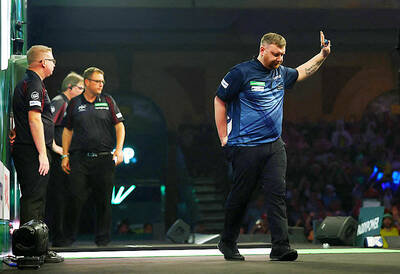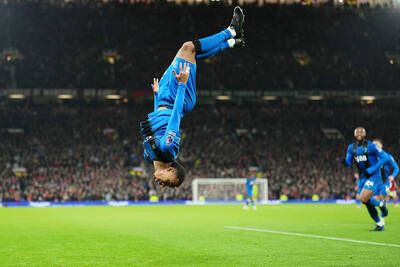By the end of a year where Australia continued to remain supreme as the leading Test and one-day side, it was easy to think little had changed in world cricket.
They won a third straight World Cup and, after a run of 14 consecutive Test wins, they were closing in on their own world record of 18 ahead of the start of their series with India.
In January, Australia completed only the second 5-0 Ashes whitewash, more than avenging their narrow 2-1 reverse of two years earlier.
After the end of the latest Ashes, in Sydney, Glenn McGrath and Shane Warne, who between them took 1,271 Test wickets, retired from the five-day game along with opening batsman Justin Langer.
Warne had singlehandedly revived the fading art of leg-spin and in so doing showed how slow bowlers could be an attacking force. His haul of 708 Test wickets was a then world record and few disputed his right to be regarded as the greatest wrist-spinner the game had known.
If the success of McGrath, who carried on to the World Cup, was achieved by more conventional means, it was no less important to Australia.
As reserved away from the pitch as Warne was colorful, McGrath elevated the traditional virtues of line and length into something approaching an art form and his tally of 563 Test wickets was the most by any pace bowler.
Warne's record though was surpassed by extraordinary Sri Lanka off-spinner Muttiah Muralitharan whose unorthodox action continues to divide opinion.
Whether Murali reaches his goal of 1,000 Test wickets remains to be seen but he may have already have an unbeatable total.
The death of Pakistan coach Bob Woolmer, found unconscious in his Jamaica hotel room on March 18, the day after his side's shock World Cup defeat against Ireland, led to a raft of conspiracy theories involving illegal betting syndicates in Asia after police launched a murder inquiry, saying the 58-year-old former England player had been strangled.
However, Woolmer was known to have suffered with diabetes and high blood pressure and last month an inquest jury returned an open verdict on his death.
On the field, the first World Cup to be staged in the Caribbean suffered from being too long and from having too many lopsided contests.
India and Pakistan's first round exits were a blow to organisers hoping fans of those two well-supported teams would help fill out the several brand new stadiums built specially for the World Cup.
The decision to price many local fans out of the market for World Cup tickets was belatedly acknowledged as an error.
So too was barring them, if they didn't have written permission, from bringing the musical instruments which helped distinguish cricket in the Caribbean from anywhere else.
The combined effect was to ensure that even big games were played out in front of meagre crowds in a soulless atmosphere.
It was in such an environment that Pakistan skipper Inzamam-ul-Haq made a tearful exit from one-day cricket.
Amidst repeated examples of ruthless Australian professionalism, captain Ricky Ponting leading the way, others also shone briefly with Lasith Malinga taking four wickets in as many balls for Sri Lanka against South Africa and Bangladesh beating India.
Adam Gilchrist's century, a commanding display of clean-hitting, should have been the abiding memory of the World Cup final.
But it was overshadowed by the ridiculous sight of the showpiece being completed in the Bridgetown darkness.
By contrast the far more concise inaugural World Twenty20 in South Africa, where India beat rivals Pakistan in a tense final, was hailed as a success.
However, India batsman Yuvraj Singh's six sixes in an over off England's Stuart Broad were symptomatic of how heavily biased the fledgling format was in favor of batsmen.
The Twenty20 era pretty much passed Brian Lara by, to the relief of bowlers everywhere.
He retired after the World Cup as Test cricket's leading run-scorer -- an achievement all the more impressive by his playing in a largely weak side.
Whatever his leadership skills, there was no denying the majesty of Lara's batting which, at its height, saw him make match-winning hundreds full of thrilling strokpelay against even Australia's attack.
India enjoyed its first Test series win in England for 21 years with a maiden hundred from spinner Anil Kumble their lone century.

The pressure was already on Real Madrid coach Xabi Alonso before their 2-1 defeat to Manchester City on Wednesday in the UEFA Champions League raised further questions about his future. Arsenal remain perfect in this season’s competition and three points clear at the top of the standings after a 3-0 win against Club Brugge, while defending champions Paris Saint-Germain were held 0-0 at Athletic Bilbao. The clash between Madrid and City was the standout game of the round amid reports this week that Alonso had lost control of the locker room. Speculation over his position is likely to intensify after the latest

By the time Cameron Menzies finally left the arena on Monday, the blood gushing from the gash on his right hand had trickled down his wrist, part of his forearm and — somehow — up to his face. Smeared in crimson and regret, and already mouthing sheepish apologies to the crowd, he disappeared down the steps, pursued by a stern-looking Matt Porter, the chief executive of Professional Darts Corp (PDC). The physical scars from Menzies’ encounter with the Alexandra Palace drinks table after his 3-2 defeat against Charlie Manby at the Darts World Championship would be gone within a few weeks.

Manchester United on Monday blew the lead three times to miss out on moving up to fifth in the Premier League as AFC Bournemouth would not be beaten in a thrilling 4-4 draw at Old Trafford. United have lost just once in their past 10 games, but Ruben Amorim would be frustrated as more points at home were frittered away despite arguably the best attacking display of his reign in charge. Amad Diallo and Casemiro gave the hosts a halftime lead either side of Antoine Semenyo’s equalizer. Two Bournemouth goals from Evanilson and Marcus Tavernier in seven minutes at the start of the

‘HIGH STANDARD’: The Thunder are on track for a Finals-Cup double after they scored 22 three-pointers in equaling the best 25-game start to a season in NBA history The Oklahoma City Thunder on Wednesday bagged a 16th straight victory, thrashing the Phoenix Suns 138-89 to romp into an NBA Cup semi-final clash with the San Antonio Spurs, who stunned the Los Angeles Lakers 132-119. NBA Most Valuable Player Shai Gilgeous-Alexander scored 28 points to lead the reigning NBA champions Thunder, who improved to 24-1 to equal the best 25-game start to a season in league history. They dominated from start to finish to book their place in the final four of the in-season tournament in Las Vegas, where they are tomorrow to take on the Spurs. The New York Knicks and